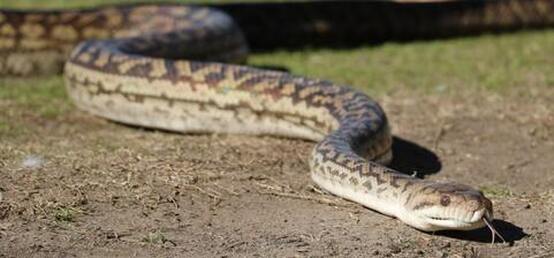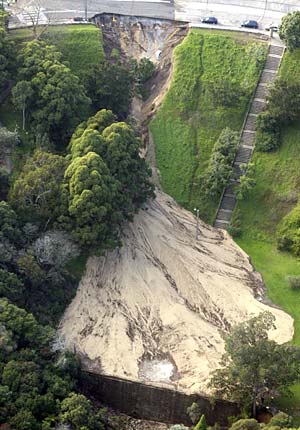Archives
How to Stop Snakes in a drain!
On a recent trip to balmy Townsville, North Queensland our Saturday night movie screening on a friends verandah was interrupted when another guest saw a three metre python moving on the roof next door. Said serpent was moving towards the open windows of the neighbours first floor bedroom! Our hostess declared intermission, paused the movie and contacted the neighbours to close their bedroom windows.

The other movie-goers, Queenslanders, shrugged, took a sip of their XXXX and declared “Thats Townsville!”
This cowboy immediately found it difficult to focus on the french sub-titles and only think about how I could prevent pythons from getting in my North Queensland friends storm water pipes.
By the time the movie had ended I came up with a few simple ways to prevent pythons from entering your North Queensland storm water pipes:
- Install wire mesh or grates: Fit wire mesh or grates over the openings of your storm water pipes. Use a mesh with small openings to prevent snakes from slithering through. Make sure the mesh or grates are securely fastened to prevent any gaps.
- Seal pipe joints and cracks: Inspect your storm water pipes for any gaps, cracks, or loose joints. Snakes can squeeze through surprisingly small openings, so seal these gaps using appropriate materials like silicone sealant or concrete patching compound.
- Regularly maintain and clear vegetation: Remove any overgrown vegetation or debris around your property, particularly near the storm water pipes. Pythons are attracted to areas with ample hiding spots, so keeping the area clear reduces their habitat and discourages them from approaching.
- Consider snake repellents: Some commercially available snake repellents emit odors that snakes find unpleasant. Consult with a local expert or snake control professional to determine if such repellents are effective and suitable for your situation.
- Monitor and remove potential snake magnets: Snakes are often attracted to food sources, like small animals or rats and mice. Take steps to control rodent populations around your property, such as securing garbage bins and removing potential food sources.
- Educate yourself and your neighbours: Learn about the types of snakes in your area, their habits, and their preferred habitats. Share this knowledge with others in your community to raise awareness and promote snake-safe practices.
- Consult a local snake expert: Reach out to local wildlife or snake experts who have experience dealing with snakes in your specific region. They can provide valuable advice and guidance tailored to your location.
Remember, it’s important to handle snakes with caution and avoid direct confrontation. If you encounter a snake or suspect an infestation, contact the local wildlife authorities or snake control professionals for assistance and advice.
Winter rain comes with a blast
Winter Rain and blocked pipes.
The forecast east coast low started dumping rain on us last night. Road accidents caused by wet conditions and local flooding are the norm today. The weather bureau suggest these conditions will continue until Monday.
Blocked storm water drains, storm water pipes and storm water pits have been the order of the day today after the rain came thick and fast.
Where possible, keep your roof gutters and drains clear of leaf debris to avoid flooding and pipe overflows.

Never Underestimate The Power of Water and its Effects on Drainage
The awesome power of water and the damage it can cause has been widely witnessed in the past month, not only throughout Sydney, but also along the entire eastern coastline of Australia. These problems have been caused by freak weather patterns and the failure of man-made stormwater systems to cope with the sheer volume of stormwater.
Large storms in South East Queensland have caused the largest floods that the area has seen in 20 years. These floods left hundreds of people stranded for days, as well as causing millions of dollars in damage and completely submerging many towns, with levee banks being breached and rivers bursting their banks. Locally, damage from extensive rains was also seen in Coogee and Randwick with flash flooding sweeping parked cars out onto the street, turning low lying areas into lakes and severely damaging some local homes, properties and businesses like Coogee Bowling Club, only 200 metres from our Coogee base. The world famous Coogee Oval was submerged, with only the tops of the picket fence still visible.
Stormwater systems throughout the Coogee and Randwick area were put to the test, and any property with even slightly blocked stormwater drains had water lapping at their doors, and in some cases had water damage inside their homes. Many gardens were ruined by the “walls” of stormwater passing through.

Dolphin Street Coogee turned into a riverbed
On May 28th 2009, a water main running underneath Victoria Road in Bellevue Hill burst, causing such a great deal of erosion that a 25m stretch of road collapsed, washing away two cars with it into Cooper Park below. This landslide caused a major road to be closed indefinitely. The damaged gas pipes meant that the surrounding area had to be temporarily evacuated because of the risk of an explosion.
It has been reported in the press that water was seen leaking from the road in this area in the week leading up to this hole appearing.
Never ignore a leaking water pipe or blocked stormwater pipe.

Cooper Park below burst water main in Bellevue Hill
